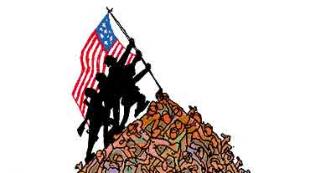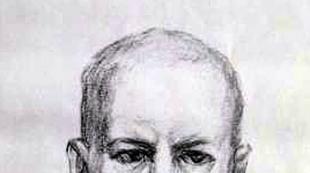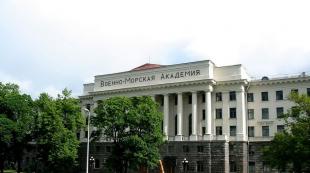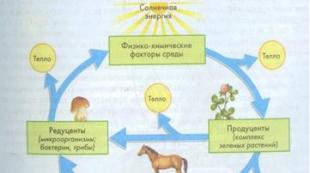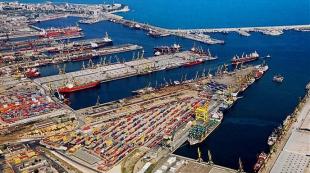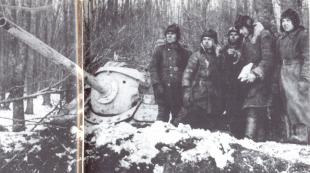Treaty of Friendship and Border between the USSR and Germany. German-Soviet Treaty of Friendship and Border between the USSR and Germany Treaty of Friendship and Border between the USSR and Germany
GERMAN-SOVIET AGREEMENT OF FRIENDSHIP AND BORDER BETWEEN THE USSR AND GERMANY
(with confidential protocol)
After the collapse of the former Polish state, the government of the USSR and the German government consider it exclusively their task to restore peace and order in this territory and to ensure a peaceful existence for the peoples living there, corresponding to their national characteristics. To this end, they have come to an agreement as follows:
The government of the USSR and the German government establish as the boundary between mutual state interests on the territory of the former Polish state a line, which is marked on the map attached to this and will be described in more detail in an additional protocol.
Both Parties recognize the boundary of mutual state interests established in Article I as final and eliminate any interference of third powers in this decision.
Article III
The necessary state reorganization in the territory to the west of the line indicated in the article is carried out by the German government, in the territory to the east of this line - by the Government of the USSR.
The Government of the USSR and the German Government regard the above reorganization as a reliable foundation for the further development of friendly relations between their peoples.
This treaty is subject to ratification. The exchange of instruments of ratification should take place as soon as possible in Berlin. The agreement comes into force from the moment of its signing. Compiled in two originals, in German and Russian.
For the German government
V. Molotov
I. Ribbentrop
CONFIDENTIAL PROTOCOL
The Government of the USSR will not create any obstacles in the way of imperial citizens and other persons of German origin living in territories that are in its sphere of interest, if they wish to resettle in Germany or in territories that are in the German sphere of interest. It agrees that such transfers will be carried out by commissioners of the Government of the Empire in cooperation with the competent local authorities and that the property rights of emigrants will be protected.
Similar obligations are assumed by the Government of Germany in relation to persons of Ukrainian or Belarusian origin living in the territories under its jurisdiction.
By authorization of the Government of the USSR:
For the German government
V. Molotov
I. Ribbentrop
The undersigned Plenipotentiaries state the consent of the German Government and the Government of the USSR as follows:
The secret additional protocol signed on August 23, 1939 is amended in paragraph 1 in such a way that the territory of the State of Lithuania is included in the sphere of interests of the USSR, since, on the other hand, the Lublin Voivodeship and parts of the Warsaw Voivodeship are included in the sphere of interests of Germany (see the map to the one signed today Treaty of Friendship and Border between the USSR and Germany). As soon as the Government of the USSR takes special measures on Lithuanian territory to protect its interests, the present German-Lithuanian frontier, for the purpose of drawing a natural and simple frontier, is corrected so that the Lithuanian territory, which lies southwest of the line indicated on the map, goes to Germany. .
By authorization of the Government of the USSR:
For the German government
V. Molotov
I. Ribbentrop
SECRET ADDITIONAL PROTOCOL
(about the prevention of Polish agitation)
The undersigned plenipotentiaries, upon the conclusion of the German-Russian Treaty of Friendship and Frontier, declare their agreement as follows:
Both Parties will not allow any Polish agitation in their territories affecting the territory of the other Party. They will suppress in their territories all sources of such agitation and inform each other of the measures taken to this end.
By authorization of the Government of the USSR:
For the German government
V. Molotov
I. Ribbentrop
The document is cited from the ed.: Vladislav ShVED. Neo-Nazis of Lithuania against Russia. M., 2015, p. 765-770.
Help article
THE SOVIET-GERMAN TREATY ON FRIENDSHIP AND BORDER 1939 was concluded on September 28 in Moscow. Signed by the USSR - V. M. Molotov, Germany - J. von Ribbentrop.
The agreement established the border between Germany and the USSR "after the collapse of the former Polish state" along the line drawn on the map attached to the agreement and described in the additional protocol.
The Preamble of the treaty declaratively declared the task of restoring peace and order in the Polish territories that were ceded to Germany and the USSR in September 1939. Mutual state interests and the elimination of any interference of third powers in the decision on the division of Polish territory were stipulated.
The Trust Protocol of September 28, 1939 established that the Government of the USSR would not prevent German citizens and other persons of German origin from resettling in Germany, and the German government would assume the same obligation regarding persons of Ukrainian and Belarusian origin.
The secret additional protocol of September 28, 1939 determined the delimitation of the interests of Germany and the USSR on the territory of the Lithuanian state.
Orlov A.S., Georgiev N.G., Georgiev V.A. Historical dictionary. 2nd ed. M., 2012, p. 477.
records of conversations between the People's Commissar for Foreign Affairs of the USSR V.M. Molotov and the envoy of the Republic of Latvia to the USSR F. Kotsins on June 16, 1940
Conversation at 19.45
At 19 o'clock. 45 min. The Latvian envoy Kotsins came to me and said that he had already contacted Riga, conveyed to his government the statement of the Soviet government and received the following answer:
1. The Latvian government expresses its readiness to ensure the free passage of Soviet troops to Latvia, however, due to the big holiday today in Latvia, in the Lonkasi region, a large number of citizens have gathered who will stay there until late at night, the Latvian government is afraid, as it were, due to the large crowds of people , there were no undesirable incidents between the Soviet units that will enter Latvia and the participants in the festival. Therefore, the Latvian government asks to postpone the entry of troops into Latvia until the morning of June 17th.
In addition, the Latvian government asks to show him the roads along which the Soviet troops will advance through the territory of Latvia.
2. In view of the fact that not all members of the Latvian Government are present and there is no quorum to decide on the resignation of the current government and the convening of a new government, the Government of Latvia asks to be given the opportunity to announce that the quorum will be reached by 8 a.m. evenings.
In addition, the President of the Republic of Latvia asks to be informed with whom he should contact on the formation of a new government.
3. The Government of Latvia asks not to publish the statements of the Soviet government in the press, as the ultimatum may leave a bad impression. It is better for the relations of both countries not to publish this statement.
In his reply, Comrade Molotov pointed out that the entry of Soviet troops into Latvia could begin tomorrow, June 17, at 3-4 o'clock. morning, so the holiday will not interfere with this entry.
Regarding the roads along which the Soviet troops would move, comrades Molotov and Kotsinsh agreed that representatives would be appointed from both sides, who would communicate among themselves on these issues. They agreed to exchange the names of the commissioners in 1-2 hours.
Tov. Molotov told Kotsins that the Soviet government would make a special appeal to the government of Latvia to instruct the local authorities and the population not to allow any misunderstandings during the entry of Soviet troops into Latvia.
Concerning the resignation of the government of comrade. Molotov declared that since the quorum would be present at 8 o'clock. evening, then Kotsins still have time to give an answer before the deadline.
As regards the President's request to indicate a person with whom he could communicate on the question of the formation of a new government, such a person will be notified.
Tov. Molotov refused Kotsinsh's request not to publish the statements of the Soviet government. Then Kotsinsh began to ask Comrade Molotov to postpone this publication for some time. To the question of Comrade Molotov, for how long the Latvian government wishes to postpone the publication of the statement, Kotsins did not give an answer, saying that he found it difficult to answer this question, since this period was not indicated to him.
Tov. Molotov promised the envoy his request not to publish statements to report to his government, however, for his part, said that he did not promise a positive solution to this issue, since this could not be made a secret.
Conversation at 22.40
Kotsinsh came to me at 22:00. 40 min. and, on behalf of his government, announced that the entire composition of the cabinet (6 people), with the exception of two cabinet members who had not yet returned to Riga, had resigned. Thus, Kotsinsh officially informs Comrade Molotov that the demand of the Soviet Union regarding the government has been accepted.
Kocinsh confirms the decision of the Latvian government on the free passage of Soviet troops to Latvia. At the same time, Kocinsh informs that for communication with the command of the Soviet troops from Latvia, the assistant to the Chief of Staff, Colonel Udentynsh, is authorized.
Kotsinsh asks to start crossing the border no earlier than 9 a.m. in the morning, as it takes some time to prepare for the reception of Soviet troops.
Tov. Molotov declares that regarding the time of the crossing and the areas through which the Soviet troops will cross the border of Latvia, he will inform Kotsinsh additionally.
General Pavlov was appointed a representative from the Soviet side.
Tov. Molotov replies that he reported the envoy's request to the Soviet government and the latter found it possible not to publish the ultimatum part of the statement.
Kocinsh asks for a communiqué that simply states that, at the suggestion of the Soviet government, the government of Latvia has agreed to an increase in the number of Soviet troops in Latvia.
Tov. Molotov asks, what about the government?
Kocinsh replies that the second point could be that the Latvian government has resigned.
Tov. Molotov notes that it is impossible to ignore the facts that are mentioned in the statement, so the statement will be published, but the final one, i.e., will be excluded from it. ultimate, part. At the end of this statement, it will be said that the government of Latvia accepted the conditions put forward in the statement of the Soviet government. We cannot accept the envoy's proposal not to publish this statement, as this would mean that we are hiding the essence of the issue from the public, and it will not be clear what the matter is, where this whole issue came from, etc. This is all the more undesirable because they can interpret it differently, while the essence of the issue is quite clear - this is a military alliance. The question is why it was needed, why it was necessary to draw Lithuania into it, etc.
Kocinsh is trying to prove again that the Latvian government treated the USSR favorably.
Tov. Molotov notes that there are, of course, people in Latvia who treat the USSR better. Here was General Balodis, Comrade Molotov continues, he treated the USSR better, but he was removed. Well, why all these secret conferences, trips of general staffs, the creation of a special body of the Baltic Entente, Lithuania was drawn into a military alliance, etc.?
Kotsins, on behalf of the government of Latvia, as he put it, declares that Lithuania is not in an alliance.
Tov. Molotov remarks to the envoy that “You say what your government instructs you, but we do not trust this government. You declare what you are instructed to declare by your government. You have to do it, but you have to look at things with open eyes. The attitude of the Latvian government towards the USSR was not entirely honest, and we were convinced of this during the conversations that took place recently in Moscow with Merkis, Prime Minister of Lithuania.
Kocinsh again returns to his previous statement, which he made to Comrade Molotov in the afternoon, that he always asked in conversations with Comrade Molotov and Comrade Dekanozov: are there any wishes on the issue of relations between the two countries? And he never heard any complaints.
Tov. Molotov replied that these questions concerned mainly current affairs.
At the end of the conversation, it was agreed that Kotsins would be summoned additionally to report on the activities of the Soviet government related to the crossing of the Soviet troops of the Latvian border.
September 28, 1939 - after 20 days of resistance, an act of capitulation of Warsaw was signed, on the same day, as a result of negotiations between the People's Commissar for Foreign Affairs of the USSR V. M. Molotov and German Foreign Minister I. von Ribbentrop, the “Treaty of Friendship and Borders” was signed between the USSR and Germany. Secret additional protocols to which fixed a new division of the spheres of influence of the Soviet Union and the Third Reich: Lithuania passed into the Soviet "zone", and the western lands of Poland were turned into a German general government, and also coordinated the prevention of "Polish agitation" on the territory of occupied Poland.
Description
Three secret protocols were attached to the treaty - one confidential and two secret. The confidential protocol determined the procedure for the exchange of Soviet and German citizens between both parts of divided Poland, and the secret protocol corrected the zones of Eastern European “spheres of interest” in connection with the partition of Poland and the upcoming “special measures on Lithuanian territory to protect the interests of the Soviet side”, and also established the obligation of the parties suppress any "Polish agitation" affecting the interests of the parties.During the invasion of Poland, the Germans occupied the Lublin Voivodeship and the eastern part of the Warsaw Voivodeship, the territories of which, in accordance with the Molotov-Ribbentrop Pact, were in the sphere of interests of the Soviet Union. In order to compensate the Soviet Union for these losses, a secret protocol was drawn up to this treaty, according to which Lithuania, with the exception of a small territory of the Suwalki region, passed into the sphere of influence of the USSR. This exchange provided the Soviet Union with German non-intervention in relations with Lithuania, which resulted in the establishment of the Lithuanian SSR on June 15, 1940.
Treaty of friendship and border between the USSR and Germany
After the collapse of the former Polish state, the Government of the USSR and the German Government consider it solely their task to restore peace and order in this territory and to ensure a peaceful existence for the peoples living there, in accordance with their national characteristics. To this end, they have come to an agreement as follows: - The Government of the USSR and the German Government establish as the boundary between mutual state interests on the territory of the former Polish state a line, which is marked on the map attached to this and will be described in more detail in an additional protocol.
- Both Parties recognize the boundary established in Article 1 of mutual state interests as final, and eliminate any interference of third powers in this decision.
- The necessary state reorganization in the territory to the west of the line indicated in the article is carried out by the German Government, in the territory to the east of this line - by the Government of the USSR.
- The Government of the USSR and the German Government regard the above reorganization as a reliable foundation for the further development of friendly relations between their peoples.
- This treaty is subject to ratification. The exchange of instruments of ratification should take place as soon as possible in Berlin. The agreement comes into force from the moment of its signing. Compiled in two originals, in German and Russian.

Secret Additional Protocol
The undersigned plenipotentiaries declare the agreement of the Government of Germany and the Government of the USSR as follows:The secret additional protocol, signed on August 23, 1939, should be amended in paragraph 1, reflecting the fact that the territory of the State of Lithuania fell into the sphere of influence of the USSR, while, on the other hand, the Lublin Voivodeship and part of the Warsaw Voivodeship went into the sphere of influence Germany (see the map attached to the Friendship and Border Treaty signed today).
As soon as the Government of the USSR takes special measures on Lithuanian territory to protect its interests, the present German-Lithuanian frontier, in order to establish a natural and simple frontier description, should be corrected in such a way that the Lithuanian territory located southwest of the line marked on attached map, went to Germany.
The undersigned plenipotentiaries, upon the conclusion of the Treaty of Friendship and Border, declare their consent to the following:
Both Parties will not allow any Polish agitation in their territories affecting the territory of the other Party. They will suppress in their territories all sources of such agitation and inform each other of the measures taken to this end.
Results
As a result of these events, a territory of 196 thousand km² with a population of about 13 million people passed under the control of the USSR.After the German attack on the Soviet Union on June 22, 1941, the treaty, like all other Soviet-German treaties, became invalid. At the conclusion of the Sikorsky-Maisky Agreement on July 30, 1941, the Soviet government recognized the Soviet-German treaties of 1939 as invalid in terms of territorial changes in Poland.
Signing an agreement
German-Soviet Treaty of Friendship and Border between the USSR and Germany of 09/28/1939After the collapse of the former Polish state, the government of the USSR and the German government consider it exclusively their task to restore peace and order in this territory and to ensure a peaceful existence for the peoples living there, corresponding to their national characteristics. To this end, they have come to an agreement as follows:
Article I
The government of the USSR and the German government establish as the boundary between mutual state interests on the territory of the former Polish state a line, which is marked on the map attached to this and will be described in more detail in an additional protocol.
Article II
Both Parties recognize the boundary of mutual state interests established in Article I as final and eliminate any interference of third powers in this decision.
Article III
The necessary state reorganization in the territory to the west of the line indicated in the article is carried out by the German government, in the territory to the east of this line - by the Government of the USSR.
Article IV
The Government of the USSR and the German Government regard the above reorganization as a reliable foundation for the further development of friendly relations between their peoples.
Article V
This treaty is subject to ratification. The exchange of instruments of ratification should take place as soon as possible in Berlin.
The agreement comes into force from the moment of its signing.
Compiled in two originals, in German and Russian.
Moscow, September 28, 1939.
V. Molotov
For the German Government
I. Ribbentrop
CONFIDENCE PROTOCOL TO THE "GERMAN-SOVIET AGREEMENT OF FRIENDSHIP AND BORDER BETWEEN THE USSR AND GERMANY"
The Government of the USSR will not prevent German citizens and other persons of German origin residing in its spheres of interest if they wish to resettle in Germany or in the spheres of German interests. It agrees that this resettlement will be carried out by agents of the German Government in agreement with the competent local authorities and that the property rights of the settlers will not be affected.
The corresponding obligation is assumed by the German Government regarding persons of Ukrainian or Belarusian origin living in the areas of its interests.
By authorization of the Government of the USSR
V. Molotov
I. Ribbentrop
The undersigned Plenipotentiaries, when concluding the Soviet-German Treaty on the Border and Friendship, stated their agreement to the following:
Both Parties will not allow any Polish agitation in their territories that affects the territory of another country. They will eliminate the germs of such agitation in their territories and will inform each other about appropriate measures for this.
Moscow, September 28, 1939
By authorization of the Government of the USSR
V. Molotov
For the German Government
I. Ribbentrop
SECRET ADDITIONAL PROTOCOL
The undersigned Plenipotentiaries, when concluding the Soviet-German Treaty of Boundary and Friendship, state the agreement of the German Government and the Government of the USSR on the following:
The secret additional protocol signed on August 23, 1939 is amended in clause I in such a way that the territory of the Lithuanian state is included in the sphere of interests of the USSR, since, on the other hand, the Lublin Voivodeship and parts of the Warsaw Voivodeship are included in the sphere of German interests (see the map to the treaty signed today on friendship and the border between the USSR and Germany). As soon as the Government of the USSR takes special measures on Lithuanian territory to protect its interests, the present German-Lithuanian frontier, for the purpose of a simple and natural delineation of the frontier, is corrected in such a way that the Lithuanian territory, which lies to the southwest of the line indicated on the map, retreats to Germany.
Further, it is stated that the economic agreements between Germany and Lithuania that are in force must not be violated by the above-mentioned measures of the Soviet Union.
Moscow, September 28, 1939
By authorization of the Government of the USSR
V. Molotov
For the German Government
I. Ribbentrop
Quoted from: Documents of foreign policy, 1939, vol. 22, book 2 - M .: International relations, 1992, pp. 134 - 136 Tags:
September 1, 1939 Germany began hostilities against Poland. In just 10 days, the resistance of the Polish army was broken along the entire length of the front. Commander-in-Chief Edward Rydz-Smigly gives the order for a general retreat, but it also fails to be carried out. Most of the troops are surrounded. The world will know what a "blitzkrieg" is.
On the morning of September 17, the Red Army crosses the Polish border. On the eve of the Polish ambassador in Moscow, it was announced that due to the fact that the Polish state had actually ceased to exist, the USSR was taking under the protection of the population of Western Belarus and Western Ukraine. The Liberation Campaign begins. A "non-existent" state is not even declared war. However, this state has nothing to fight with. And the option of waging a war on two fronts was not considered by the Polish General Staff as obviously hopeless. On the same day, the Polish government fled to Romania.
Soviet troops advance almost without resistance and soon come into contact with the Wehrmacht. On September 22, a solemn transfer of the city took place in Brest. Although individual Polish units continue to resist until October 6, this is happening much to the west.

Already on September 28, 1939, the Treaty of Friendship and Border between the USSR and Germany was signed in Moscow. The distribution of territories is somewhat different from. Germany retains the Lublin Voivodeship and the eastern povets of Warsaw (the same ones that were transferred from the Bialystok Voivodeship in 1938). Plus, the ledge between eastern Prussia and the southern part of Lithuania ("Suwalkovsky ledge") Instead, Lithuania departs into the "sphere of interest" of the USSR.
Moreover, Moscow has shown the initiative in this matter. Since the beginning of September, the Germans have been negotiating the transition of Lithuania under the protectorate of Germany and intensified the assault on Warsaw, expecting an early (scheduled for October 3) exit of Soviet troops to the western bank of the Vistula. The Germans were not averse, in view of the need for Germany "primarily forests and oil." And so they agreed. They also asked for concessions in the oil-bearing regions in the south in the upper reaches of the San River. But instead, they were offered the supply of up to half a million tons of oil in exchange for supplies of coal and steel pipes.
Since Lithuania was leaving the German "sphere of influence", Germany had claims to part of its lands. Which the USSR undertook to satisfy as soon as "special measures on Lithuanian territory" were taken.
However, in the end, the Germans received in 1941 not land, but $ 7.5 million in compensation.
PS. topic document.


